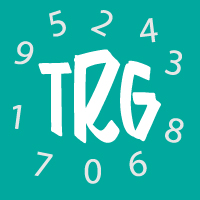Coin Flipper
Flip a coin and the random generator will decide
Our Coin Flipper offers you a fast, fun, and fair way to resolve dilemmas, make choices, or just have fun with a virtual coin toss. Whether you’re deciding on lunch options or who gets to go first in a game, our tool is here, ready to serve you at the click of a button.
Flip it now
Good luck
The Online Coin Flipper is a digital tool designed to simulate the action of flipping a coin, offering a quick and fair way to make random decisions between “heads” and “tails.” Whether you’re playing a game, making a tough decision, or just want to add a bit of chance to your day, an online coin flipper provides a convenient and reliable solution.
This tool operates through a simple mechanism where users click a button to initiate a virtual coin flip, and within seconds, the result is displayed. One of the main advantages of using an online coin flipper is its accessibility, allowing you to perform a coin flip anytime, anywhere, without needing a physical coin. It’s also completely unbiased, relying on random algorithms to ensure fair outcomes each time.
In situations where a quick, impartial decision is required, an online coin flipper can be incredibly useful. Whether you’re using it to settle debates, add randomness to a game, or simply out of curiosity, it offers a seamless and enjoyable experience. Plus, the randomness generated by these digital tools is often more reliable than physical coin tosses, where factors like hand movement and environment can influence the result


Science behind Heads or Tails
For those interested in the science behind how randomness works in games of chance, including coin tosses, Khan Academy offers a comprehensive overview. You can deepen your understanding of the principles that ensure each flip of our Heads or Tails Online tool is fair and unbiased by visiting Understanding Randomness and Probability in Coin Tosses. This resource is excellent for anyone looking to learn more about the mathematical underpinnings of probability theory and its practical applications.
History
Coin flipping, also known as “heads or tails,” has a long and fascinating history that dates back thousands of years. It is one of the simplest forms of decision-making, relying on the basic principles of randomness and chance. The act of flipping a coin to resolve disputes, make choices, or predict outcomes has been practiced across many cultures throughout history.
The origins of coin flipping can be traced back to the **Roman Empire**, where it was known as “navia aut caput,” meaning “ship or head.” The phrase referred to the common Roman coin, which often depicted a ship on one side and the head of an emperor or a deity on the other. Romans would flip the coin to make decisions, similar to the way we use it today.
Coin flipping also appeared in other ancient cultures. The Greeks, for example, had a practice called “psephos,” which involved casting stones or coins to make random decisions, often in religious contexts or public elections. The idea of using random outcomes for decisions has been tied to the belief that fate or the gods could influence the result, making the outcome impartial and fair.
As coins became more widespread in circulation, so did the practice of flipping them. Over the centuries, coin flipping evolved into a common tool for settling arguments or making decisions in games. By the Middle Ages, it was widely used in Europe and other parts of the world. The simplicity of flipping a coin made it an ideal method for making quick and impartial decisions, especially in situations where fairness was required.
In more modern times, coin flipping has found its place in both sports and legal matters. For example, it is famously used to determine which team gets the first possession in football games. It has also been used in politics; in some close elections, the outcome has been decided by a coin toss when candidates received an equal number of votes.
Today, coin flipping remains a popular method for making quick decisions, even as digital versions like online coin flippers have become available. Despite its simplicity, the act of flipping a coin connects us to an ancient practice that has stood the test of time, embodying the idea of fairness, chance, and fate.
